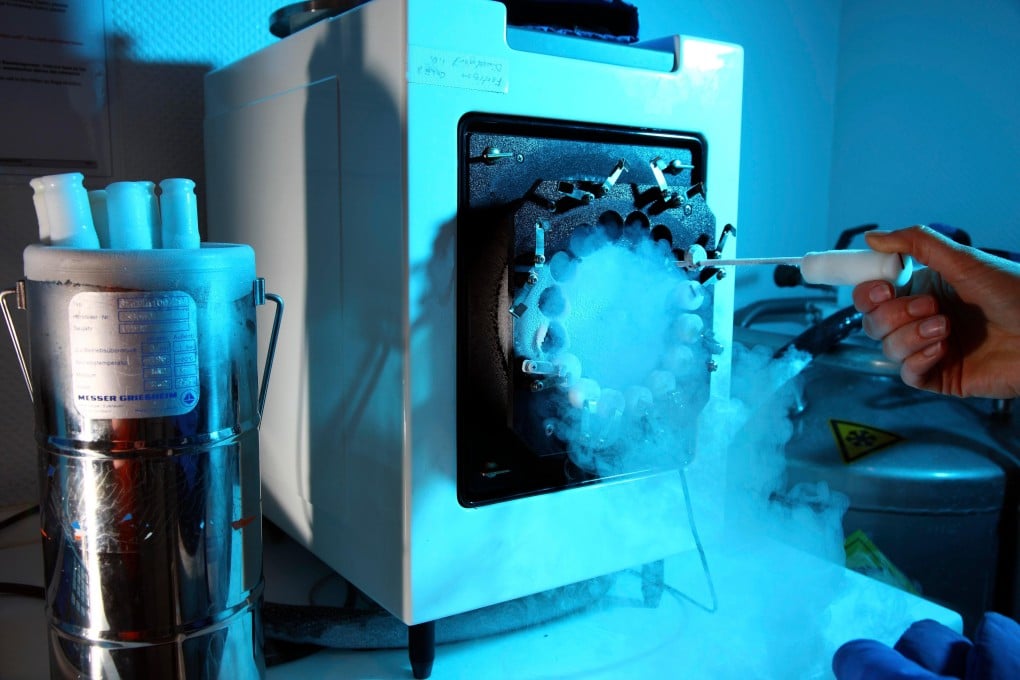Sperm freezing: why millennial men, worried about future health, are putting their swimmers on ice
- New anxiety about sperm health among young American men is funding a whole crop of new fertility services from sperm freezing to home testing kits
- But some doctors believe sperm freezing for the masses is overkill and unnecessary for the vast majority of men in their 20s and 30s

Gilbert Sanchez froze his sperm in January, shortly before his 25th birthday. He was healthy and at low-risk of fertility issues. But he wanted to be proactive – just as thousands of young women have been by putting their eggs on ice.
Sanchez was heading to graduate school in the autumn, and it might be years before he would have a steady job and the wherewithal for a family. He and his girlfriend worried about all the things that could go wrong – disease, war, natural ageing – before they might be ready.
“It was a little bit weird,” admitted Sanchez, who stored his sperm with a company called Legacy. “But it was medically responsible.”
Sanchez’s choice highlights a new anxiety about sperm health among American men. The idea that men can easily father healthy children into their 70s and 80s has been exposed as a myth. In fact, research shows that older men have a higher risk that their partners will miscarry and have children with congenital abnormalities, schizophrenia or autism.
New businesses are capitalising on those revelations. Start-ups like Trak, YO and SpermCheck are selling at-home testing kits so men can figure out early on if something is amiss with their sperm. Employee benefits companies are debating how to translate the fertility coverage they offer to female employees to their male counterparts. And sperm-freezing companies are aiming to turn what has been a sterile, clinical process into something more cool – a 23andMe or Ancestry.com for sperm.
Legacy, a company based at the Harvard Innovation Labs in Massachusetts, US, launched in October. It is part of a new breed of sperm-freezing companies that aim to shake up the industry by offering mail-in kits that allow the whole process to be done in the privacy of one’s home. A competitor, called Dadi (pronounced “daddy”) and backed by US$2 million in venture capital from New York and Silicon Valley, launched at the end of January.